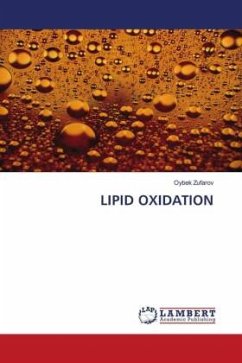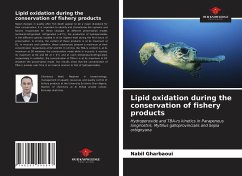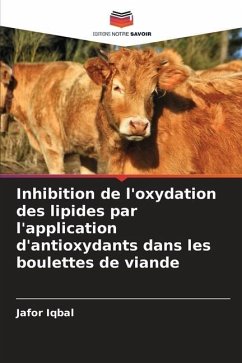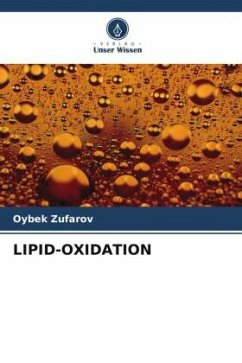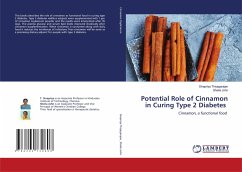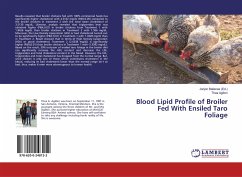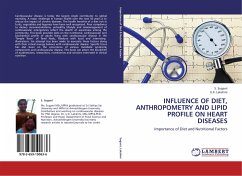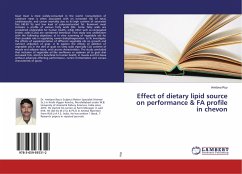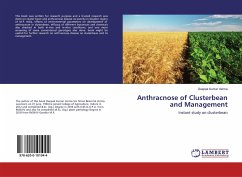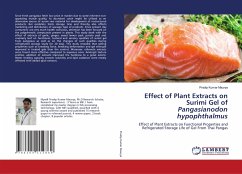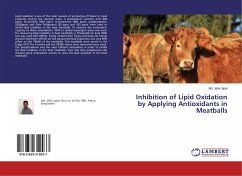
Inhibition of Lipid Oxidation by Applying Antioxidants in Meatballs
Versandkostenfrei!
Versandfertig in 6-10 Tagen
33,99 €
inkl. MwSt.

PAYBACK Punkte
17 °P sammeln!
Lipid oxidation is one of the main reasons of producing off-flavor in meat products. During the research work, 5 antioxidants: ascorbic acid (500 ppm), beta-Carotene (600 ppm), -Tocopherol (600 ppm), polyphosphate (2600ppm) and Olive Polyphenol (50 ppm and 100 ppm) were used to inhibit lipid oxidation in the beef meatballs. To measure the antioxidant capacity of those antioxidants, ABTS (a radical scavenger) assay was used. For measuring lipid oxidation in beef meatballs, a Thiobarbituric Acid (TBA) test was used (miM TMP/g). Frying method (Pan frying and Deep fat frying) showed significant ef...
Lipid oxidation is one of the main reasons of producing off-flavor in meat products. During the research work, 5 antioxidants: ascorbic acid (500 ppm), beta-Carotene (600 ppm), -Tocopherol (600 ppm), polyphosphate (2600ppm) and Olive Polyphenol (50 ppm and 100 ppm) were used to inhibit lipid oxidation in the beef meatballs. To measure the antioxidant capacity of those antioxidants, ABTS (a radical scavenger) assay was used. For measuring lipid oxidation in beef meatballs, a Thiobarbituric Acid (TBA) test was used (miM TMP/g). Frying method (Pan frying and Deep fat frying) showed significant effects on the physicochemical properties and very little effect on the TBARS of the meatballs. The meatballs were stored in the fridge (4ºC) for 4 weeks and the TBARS values were measured every week. The polyphosphate was the most efficient antioxidant in order to inhibit the lipid oxidation in the beef meatballs. Then the olive polyphenols also showed good antioxidant activity to resist the lipid oxidation in the beef meatballs.



